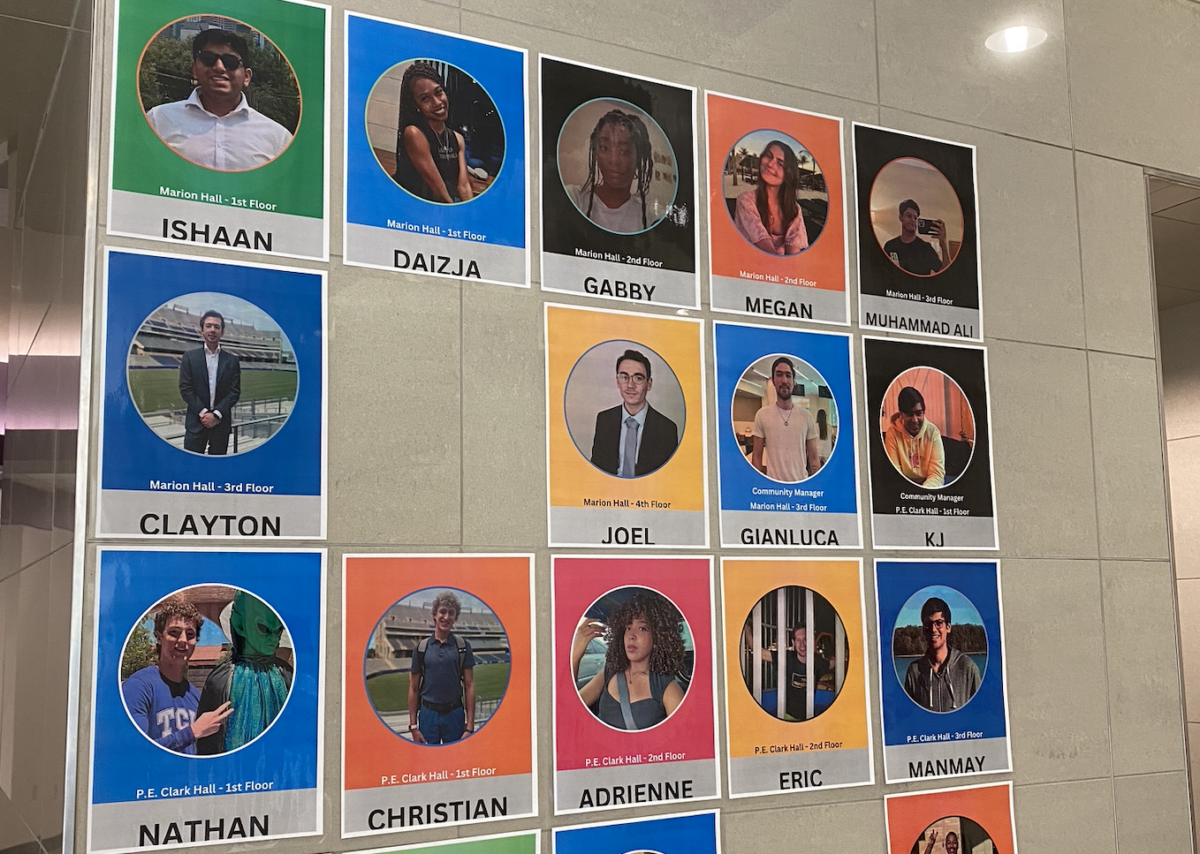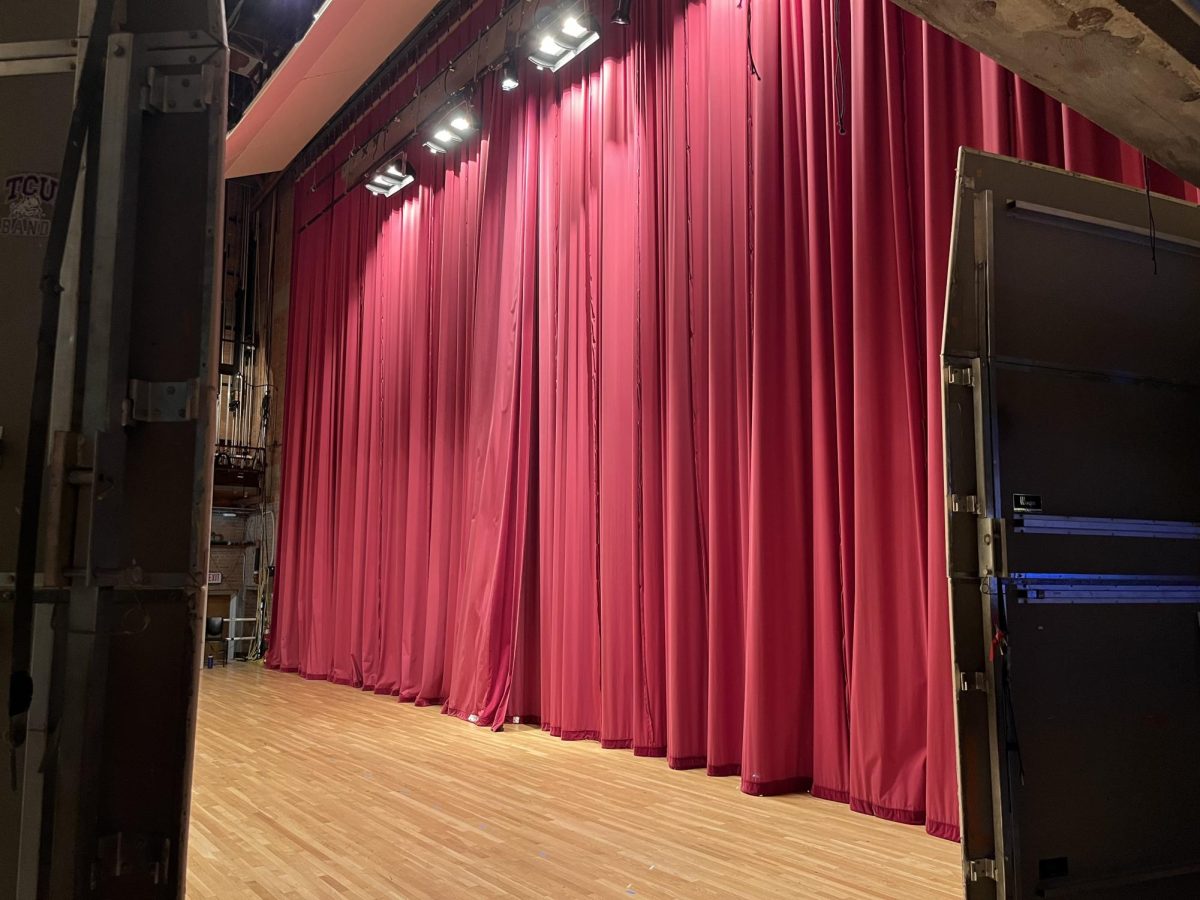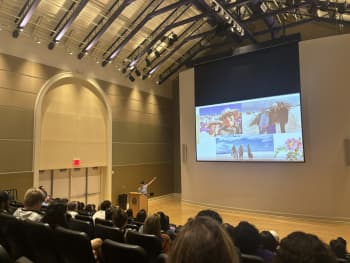Resident Assistants’ responsibilities go beyond organizing floor events in exchange for room and board.
TCU RAs are prepared to support students—particularly those in their first year, as they adjust to college life.
In college, academic demands grow considerably stricter on top of the changes in a person’s location, housing situation, social circle and other aspects of life.
“Student adjustment generally worsens across the first two years in the domains of psychological functioning,” according to the journal “Navigating the College Years: Developmental Trajectories and Gender Differences in Psychological Functioning, Cognitive-Affective Strategies, and Social Well-Being.”
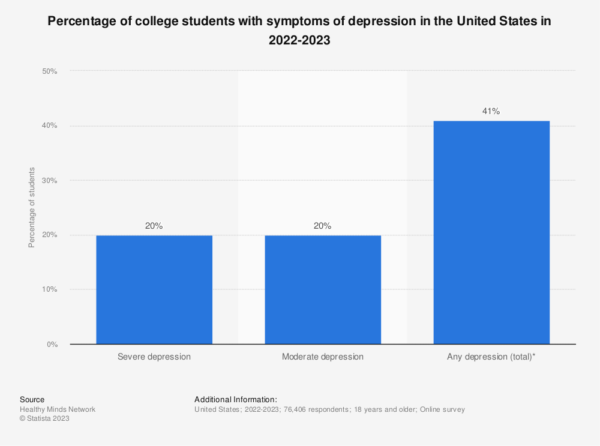
“School has been pretty stressful. The transition from high school has gotten a lot more challenging in terms of time management and self-discipline,” a first-year engineering major, Sasha Crawford said.
One of the reasons why first-year students at TCU are required to live on campus is because it gives them a place to meet friends and get involved in activities, according to TCU Housing & Residence Life.
RAs must undergo a one-to-two-week, all-day training before school starts to learn how to foster the communities they will be looking after.
Knowing, connecting and empowering, better known as KCE, is a model learned in training that can help RAs better deal with policies, roommate conflict and programming in the halls, said Megan Lorch, a Marion Hall RA.
“I am intentionally knowing, connecting and empowering with my residents because that is what was drilled into me during my training,” said Adrienne Carson, a P.E. Clark Hall RA.
RAs also go through several mock BCD (Behind Closed Doors) situations during training. These are simulations performed by RA actors portraying possible conflicts, including suicide and other serious events a resident could go through.
September is National Suicide Prevention Month.
During September, RAs are spreading awareness to their residents.
RAs in Marion Hall and P.E. Clark Hall, along with many other resident halls, are hosting programs this month to help educate residents on suicide ideation and open a line of communication between themselves and the residents.
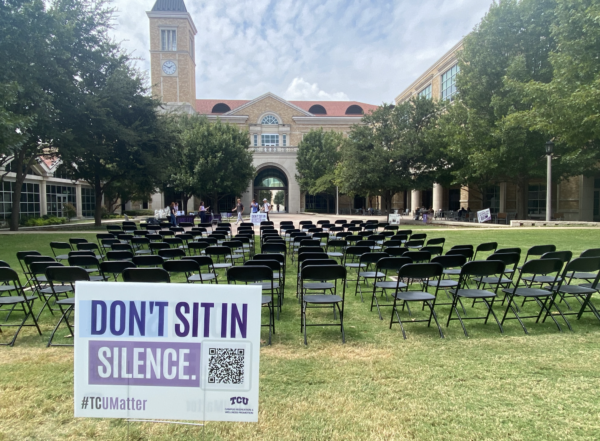
“It is a part of our jobs to make sure and reassure residents that they are welcomed and belong at TCU,” Carson said.
Question, persuade and refer (QPR) training is another aspect of RA training, which are mock situations where an RA would intervene with a resident who may be suicidal or attempting to commit suicide and refer them to professional psychiatrists.
“It’s hard to like, draw the line when you care about people so much and you want to take on a responsibility, but also realizing that I cannot do you justice with the resources that I have and you need more help than I can give,” Lorch said.


